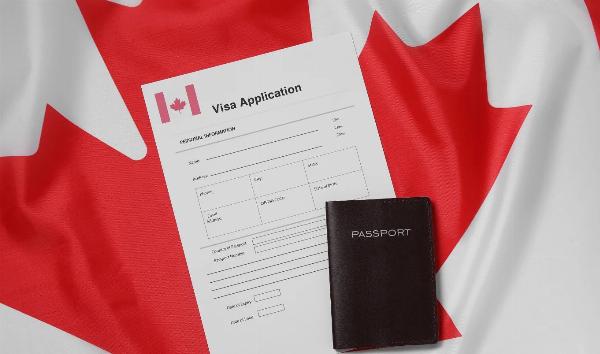 Link Insertions on Real Blogs – Quick Wins for Better Rankings!
Link Insertions on Real Blogs – Quick Wins for Better Rankings!
How to Maximize Your Chances in the Federal Skilled Worker Program
Written by Hardik Shah » Updated on: June 17th, 2025 200 views

The Federal Skilled Worker Program (FSWP) is one of Canada’s most popular immigration pathways for individuals who want to become permanent residents based on their professional skills and work experience. Managed under the Express Entry system, the FSWP is designed to attract skilled workers who can contribute to the Canadian economy. This article provides an in-depth look at the Federal Skilled Worker Program, including how it works, eligibility criteria, and practical strategies to maximize your chances of success.
What is the Federal Skilled Worker Program?
The Federal Skilled Worker Program is part of Canada’s Express Entry system, which was introduced in 2015 to manage applications for three federal economic immigration programs: the Federal Skilled Worker Program (FSWP), the Federal Skilled Trades Program (FSTP), and the Canadian Experience Class (CEC). The FSWP is specifically designed for individuals with foreign work experience who meet specific criteria related to education, work experience, age, and language proficiency.
The program operates on a points-based system, known as the Comprehensive Ranking System (CRS), which evaluates candidates based on various factors. Those with the highest CRS scores are invited to apply for permanent residency through regular draws conducted by Immigration, Refugees and Citizenship Canada (IRCC).
How the Federal Skilled Worker Program Works
The FSWP operates under the Express Entry system, which begins with candidates creating an online profile. This profile is then entered into a pool of candidates, where it is ranked based on the CRS. The CRS awards points for factors such as age, education, language proficiency, work experience, and other criteria. Candidates with the highest scores are invited to apply for permanent residency through the Express Entry draws.
The FSWP is highly competitive, and candidates must carefully plan and prepare to maximize their chances of receiving an invitation to apply (ITA). Understanding the eligibility criteria and the factors that influence CRS scores is essential for success in the FSWP.
Eligibility Criteria for the Federal Skilled Worker Program
To qualify for the FSWP, candidates must meet the following minimum requirements:
Work Experience:
Applicants must have at least one year of continuous full-time (or an equivalent amount of part-time) work experience within the last 10 years in a skilled occupation classified under the National Occupational Classification (NOC) skill level 0, A, or B.
Language Proficiency:
Candidates must demonstrate proficiency in English or French by taking an approved language test (e.g., IELTS for English, TEF for French). The minimum required score is Canadian Language Benchmark (CLB) 7 in all four language abilities: speaking, listening, reading, and writing.
Education:
Applicants must have a Canadian high school diploma or an equivalent foreign credential. If the education was obtained outside of Canada, an Educational Credential Assessment (ECA) is required to determine its equivalency to Canadian standards.
Proof of Funds:
Candidates must demonstrate that they have enough funds to support themselves and their family members after arriving in Canada, unless they are currently authorized to work in Canada or have a valid job offer.
Admissibility:
Applicants must be admissible to Canada, meaning they must not have any criminal records, medical issues, or other factors that could prevent them from entering or staying in Canada.
Selection Factors:
The FSWP uses a points-based system to assess candidates on six selection factors: age, education, work experience, language proficiency, adaptability, and whether the candidate has a valid job offer. Candidates must score a minimum of 67 points out of 100 on the selection grid to qualify for the FSWP.
Tips for Maximizing Your Chances in the Federal Skilled Worker Program
Given the competitive nature of the FSWP, applicants must be strategic in their approach to enhance their CRS scores and increase their likelihood of receiving an ITA. Below are key strategies to help you maximize your chances in the FSWP:
1. Achieve High Language Proficiency Scores
Language proficiency is one of the most significant factors in the CRS scoring system, with candidates earning up to 160 points for language skills alone. Achieving high scores in an approved language test can significantly boost your CRS score.
Tip: Prepare thoroughly for your language test by taking practice exams, enrolling in language courses, and using online resources. Consider retaking the test if your initial scores are below your expectations, as even a slight improvement can increase your CRS score.
2. Optimize Your Education Credentials
Education is another critical factor in the CRS, and having higher education levels can significantly improve your score. For candidates with foreign education credentials, obtaining an Educational Credential Assessment (ECA) is essential.
Tip: If you have multiple degrees or diplomas, ensure that you submit all of them for an ECA. Also, consider pursuing additional education or certifications to enhance your qualifications, which can lead to a higher CRS score.
3. Maximize Your Work Experience Points
Work experience is evaluated based on the number of years you have worked in a skilled occupation at NOC skill level 0, A, or B. More years of experience can lead to a higher CRS score.
Tip: Ensure that your work experience is well-documented with detailed job descriptions, reference letters, and proof of employment. If possible, continue gaining relevant work experience while preparing your Express Entry profile to increase your points.
4. Secure a Valid Job Offer
A valid job offer from a Canadian employer can add up to 200 points to your CRS score, depending on the type of job. This can significantly increase your chances of receiving an ITA.
Tip: Network with Canadian employers in your field, attend job fairs, and use online job portals to search for opportunities. If you secure a job offer, ensure that it meets the requirements for adding points to your CRS score.
5. Consider Provincial Nominee Programs (PNPs)
Provincial Nominee Programs (PNPs) allow Canadian provinces and territories to nominate candidates for permanent residency based on their specific labor market needs. A nomination from a PNP can add 600 points to your CRS score, virtually guaranteeing an ITA.
Tip: Research the PNPs in the provinces or territories where you would like to live and work. Tailor your Express Entry profile to match the criteria of these programs, and apply directly to the province if you meet their requirements.
6. Leverage Your Spouse’s Qualifications
If you are applying with a spouse or common-law partner, their qualifications can also contribute to your CRS score. Factors such as your spouse’s education, language proficiency, and work experience can add points to your overall score.
Tip: Evaluate whether it is more beneficial for you or your spouse to be the primary applicant. In some cases, having your spouse as the primary applicant may result in a higher combined CRS score.
7. Improve Your Adaptability Score
The FSWP awards points for adaptability, which reflects how well you and your family are likely to settle in Canada. Factors that contribute to adaptability include having a spouse with language proficiency, previous work or study experience in Canada, or close relatives living in Canada.
Tip: Highlight any factors that may increase your adaptability score, such as previous Canadian work or study experience. If applicable, ensure that your spouse’s language test results and educational credentials are included in your profile.
8. Keep Your Express Entry Profile Up to Date
Your Express Entry profile is a dynamic document that can be updated as you gain new skills, work experience, or educational qualifications. Keeping your profile up to date ensures that your CRS score accurately reflects your qualifications.
Tip: Regularly review and update your profile, especially if you have completed additional education, gained more work experience, or improved your language proficiency. This can help you remain competitive in the Express Entry pool.
9. Stay Informed About Program Changes
The Express Entry system and the FSWP are subject to changes in policy and program requirements. Staying informed about these changes can help you adapt your strategy and make informed decisions.
Tip: Monitor official sources such as the IRCC website, government announcements, and reputable immigration news outlets. Join online forums and communities where you can exchange information and experiences with other applicants.
10. Be Patient and Persistent
The immigration process can be lengthy and challenging, but patience and persistence are key. If you do not receive an ITA in the first few draws, continue improving your qualifications and re-evaluating your strategy.
Tip: Consider alternative immigration pathways, such as the FSTP or CEC, if you meet the eligibility criteria. Additionally, explore opportunities to gain additional points through job offers, education, or provincial nominations.
The Federal Skilled Worker Program offers a valuable opportunity for skilled professionals to achieve permanent residency in Canada. By understanding the program’s requirements and strategically improving your CRS score, you can maximize your chances of success. Careful planning, ongoing preparation, and staying informed about the latest program developments will help you navigate the FSWP and achieve your goal of living and working in Canada.
Note: IndiBlogHub features both user-submitted and editorial content. We do not verify third-party contributions. Read our Disclaimer and Privacy Policyfor details.
Copyright © 2019-2025 IndiBlogHub.com. All rights reserved. Hosted on DigitalOcean for fast, reliable performance.
















